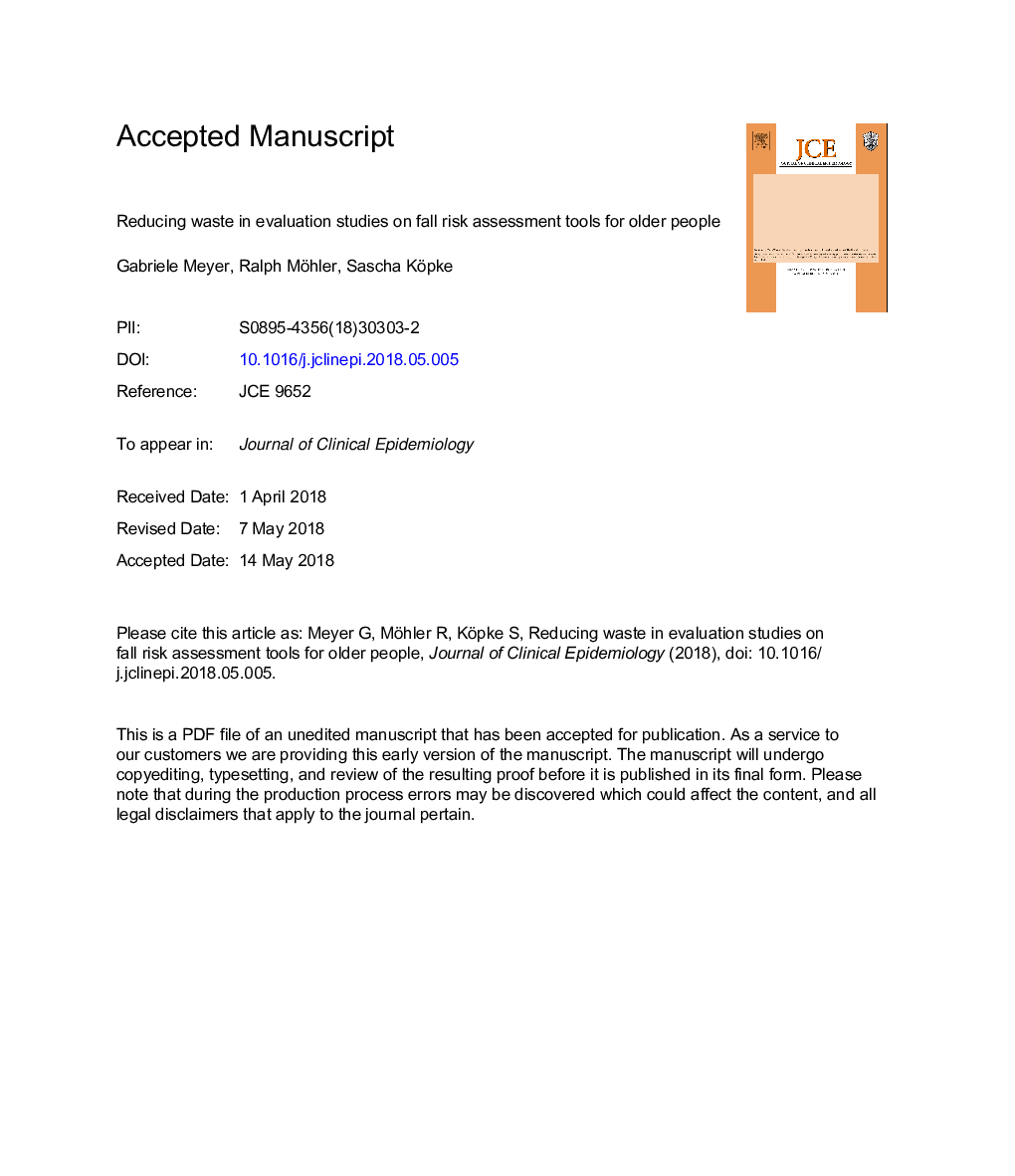| Article ID | Journal | Published Year | Pages | File Type |
|---|---|---|---|---|
| 9953277 | Journal of Clinical Epidemiology | 2018 | 16 Pages |
Abstract
Eighteen reviews published in the last 15Â years were analyzed. Only one reflects potentially important factors threatening the accuracy of assessments using delayed verification with fall events as reference after a certain period of time, that is, natural course, preventive measures, and treatment paradox where accurate assessment leads to prevention of falls, that is, influencing the reference standard and falsely indicating low diagnostic accuracy. In addition, only one review mentions randomized controlled trials as appropriate study design for the investigation of the impact of fall risk assessment tools on patient-important outcomes. Until now, only one randomized controlled trial dealing with this question has been performed showing no effect on falls and injuries. Instead of investigating the diagnostic accuracy of fall assessment tools, the focus of future research should be on the effectiveness of the implementation of fall assessment tools at reducing falls and injuries.
Keywords
Related Topics
Health Sciences
Medicine and Dentistry
Public Health and Health Policy
Authors
Gabriele Meyer, Ralph Möhler, Sascha Köpke,
